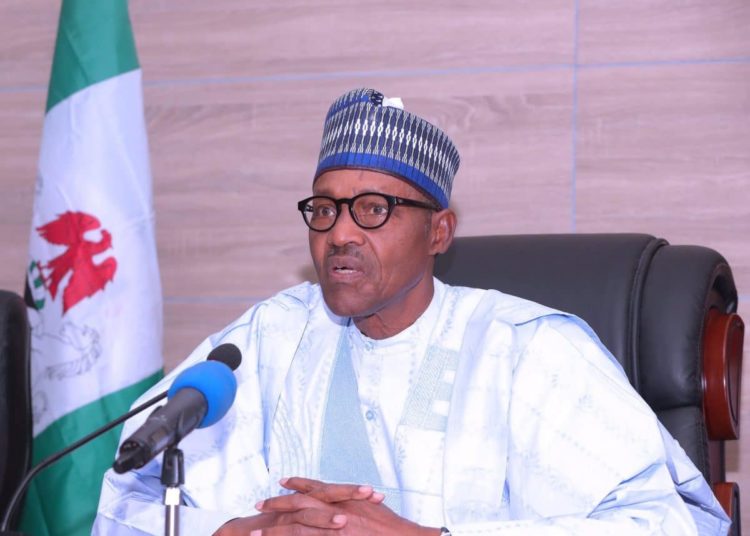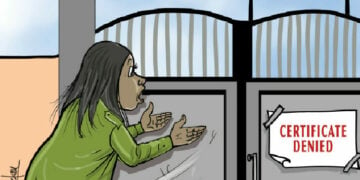Court of Public Opinion is an unlimited space within which trials of varying scopes and effects are carried out. As either real or perceived culprits, individuals and groups/communities are usually subjected to interrogations over certain ugly occurrences or prevalence of some unwanted situations.
It is a court in which members of the public freely express their views and recklessly pass judgements that are not necessarily founded on basic facts or objective realities. More genuine opinions, fundamental aspirations and valid conclusions than otherwise which are incessantly pushed onto the public domain are a proof that the Court of Public Opinion possesses tremendous jurisdiction and competence for the passage of judgements on personalities, issues and situations.
Nigerians settled on Muhammadu Buhari in 2015 and, to a much lesser extent, in 2019 for election as the president of the country because most judgements of the Court of Public Opinion greatly favoured him. He was lucky to have been considered by the bigger sections of the various segments of the citizenry to be the most qualified of all the other contestants in terms of genuine commitment to serve the country.
A lot about his past records, actions and pronouncements seemingly spoke volumes about his quality and resolve to drive Nigeria out of the huge mess in which it found themselves. He was almost generally assessed and subsequently put forward as the best of all the other candidates at the time and was therefore, on two occasions, elected as president.
Buhari and his backers, throughout the 12 years of the struggle for his emergence as president, continuously lamented the prevalent situation and paraded promises that somehow signified an immense zeal to render a service that could bring about real transformation of the country. The lamentations and promises were, in fact, the basis of the citizens’ massive support that resulted in his victory as well as, until now, understanding and cooperation with his government.
He was such an inheritor of severe challenges who, however, put on a complete posture of a committed and skilled problem-solver that the country persistently desired to have. His expressed vow to fully apply himself to the problems of insecurity, decay of infrastructure and malfunction of the superstructure as well as all those other negativities that defined the country, effectively re-enforced the belief that he was really the right person for the job.
There was a strong assumption that he would utilize the unparalleled public support he enjoyed which guaranteed him unrivalled influence as an instrument for the fulfilment of his promises. Even those who, either as political opponents or just people with some vested interests, openly detested his emergence as president appeared to have prepared for the desired change.
Specifically, his 2015 campaigns were full of assurances that he would terminate Boko Haram insurgency that was raging at the time, throw jobs around for particularly the abundant able-bodied youths to pick and stamp out the various forms of corruption that had eaten deep into society. Both his spoken and body languages carried messages that stimulated and mobilized the populace towards the choice of the All Progressives Congress (APC) on the platform of which he contested and won elections.
As a beneficiary of the judgements of the Court of Public Opinion, President Buhari must have known that he would continue to be subjected to trials by the same court, which means that a change of public perception would result in the change of judgement. As the country’s leader in whom inestimable investment in terms of hope for a better Nigeria was made, he must undergo another phase of trial that will show whether his election was a worthwhile adventure or not.
Less than ten months before the end of his tenure, the proceedings in the Court of Public Opinion have already pointed to an entirely new pattern of submissions by Nigerians to the court, which are in sharp conflict with the ones made earlier. Various concerned individuals and groups have, based on their assessments of the prevailing situation in the country, been making charges against President Buhari before the court.
Even with the consistent claim by the president that he has almost paid his dues to the electorate, a lot of the existing realities have shown that the government is only long in pronouncements but short in accomplishments. The rising insecurity and joblessness as well as pervasive corruption, all of which have created an atmosphere that have made decent living impossible for most citizens, are clear indications of a terrible failure for which President Buhari is being charged.
As a court in which the prosecutors and the judges are, in most cases, the same, verdicts are easily known even while charges are still being made. This means that the expression of absolute dissatisfaction by Nigerians over the approach of the government to the security and welfare of the people is, therefore, both a presentation of charges and pronouncement of judgement against the president.
Although as an elected leader who is exhausting his final term in office, Buhari may not feel threatened by all the charges against him, the final judgement of the public will definitely affect him and his political party, especially considering the fact that in the past he seemed to have personified total integrity and genuine commitment to the service of the country. The existing charges and the emerging unfavourable judgements have, in other words, already taken away from him most of the values and virtues with which he was consciously associated.
All those Nigerians making all those charges against the president are, of course, not unaware of the determination of key officials of the government and the ruling party to put up a defense, especially now that electioneering has commenced. As a major strategy for the retention of power, they have continued to intensify efforts towards the provision of justifications for all the actions and inactions of the president.
But the more of such efforts, the stronger the belief in a lot of critical quarters that the performances of the government in the vital sectors is far below the expectations of Nigerians. It is a belief that will fully determine the nature of the final report of the general public on the president to which future generations will make reference whenever issues about his personality and style of leadership is made.
Yes, some of the charges against President Muhammadu Buhari are clearly outrageous because they are founded almost completely on a political opposition and can, therefore, hardly withstand a critical scrutiny. Such charges are known and always easily dismissed.
Yet, the high preponderance of the reasonable and valid charges over the outrageous ones is enough to determine the nature and volume of the judgement that the Court of Public Opinion will or has even started to pass on him. It is clear that the verdict, this time around, is not in his favour.











